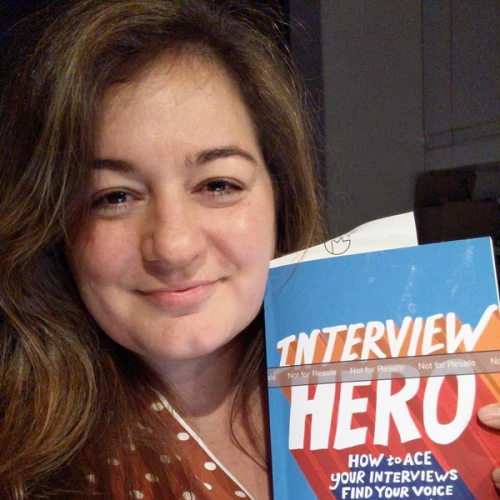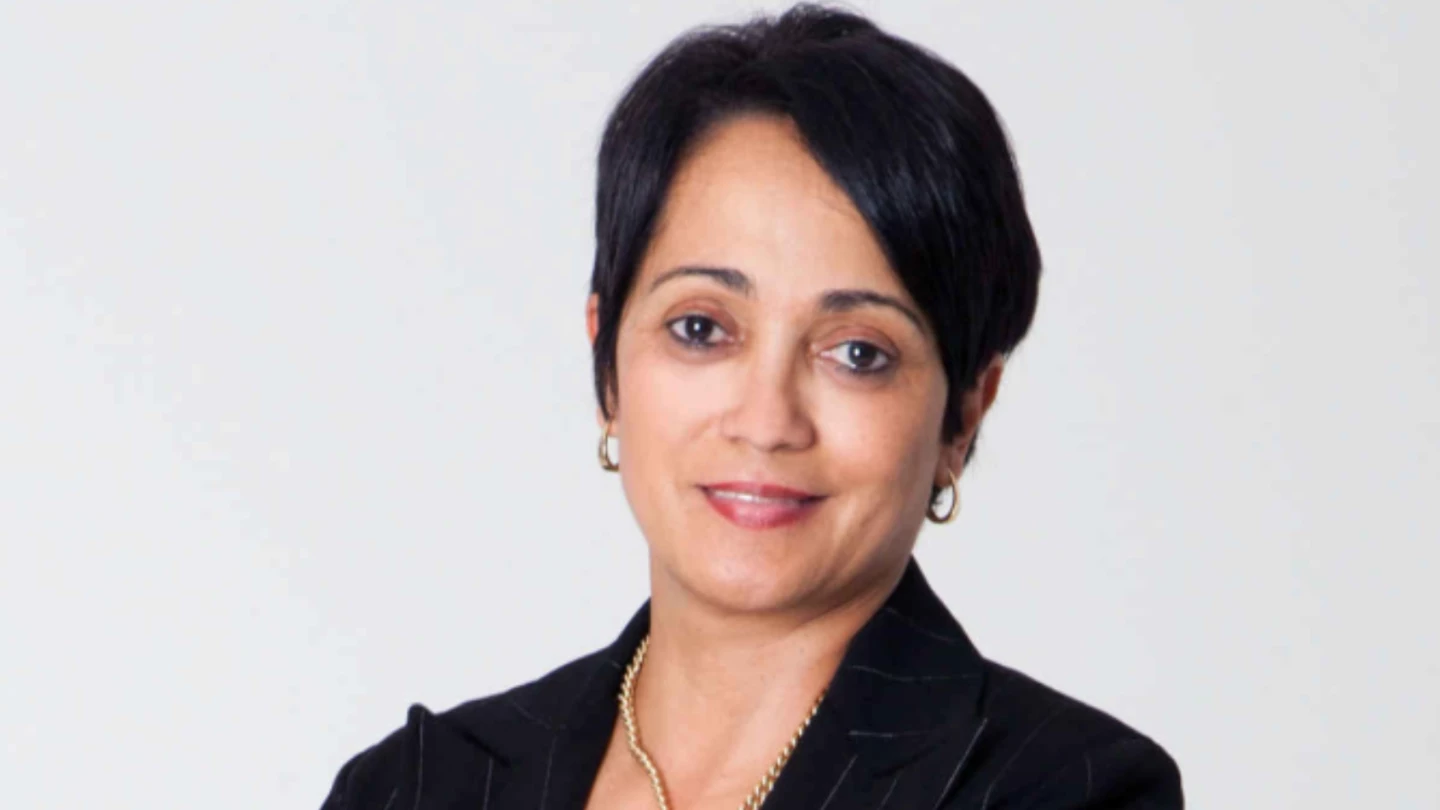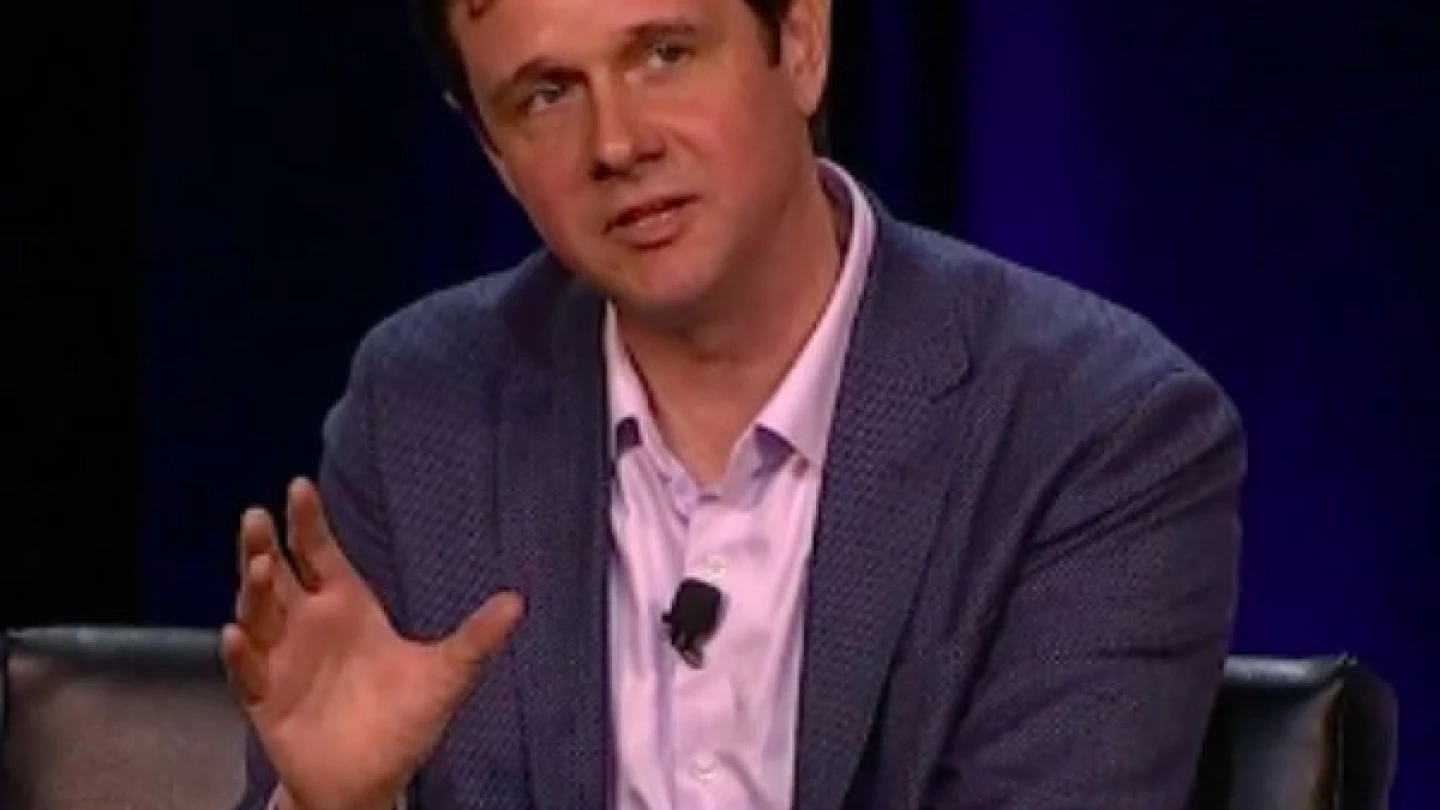The global Alumni team sat down with BCG Alumna Angela Guido to discuss the launch of her new book Interview Hero
What inspired you to write your book Interview Hero?
The seed was planted during my BCG days. When I was managing women’s recruiting, the data showed that women we were expecting to get offers for consulting roles failed during the interview process, but not due to their case performance. Instead it was about the interview–interviewee fit. They were struggling to tell compelling stories about who they are. In fact, a lot of women, including me, tend to let their work speak for itself and find self-promotion painful, which can block them from effective or compelling self-promotion.
When I was studying screenwriting, I attended a lecture about the importance of conflict in narrative structures, and there was my proverbial aha moment: if I could teach people to bring out the conflict in their stories, not only would it alleviate the feeling of arrogance and bragging, but it would also actually make their stories much more meaningful. So, I developed and led a storytelling workshop across several top MBA programs, teaching a new framework for storytelling. And it worked! The next year, we recruited more women from those schools. Interview Hero is the culmination of that single aha moment, and in the 12 subsequent years, I’ve been expanding on those ideas and teaching them to thousands of MBAs worldwide.
If you could choose only one takeaway from your book, what would it be?
Never sell yourself. Instead, share yourself authentically and let the other person draw their own conclusions. If you’re open about your experiences and values and tell stories about your life that inspire you, the right opportunities will find you.
Is there a piece of advice you know now that you wish you knew before interviewing at BCG?
When I went through internship interviews, I was tied in knots trying to impress the interviewer, and my minute-to-minute confidence relied on my interpretation of the interviewer’s facial expressions. Anyone who’s had a couple of BCG interviews may have encountered one or two strategic poker faces. I encountered a few of those, and the interviews just tanked because I got distracted by the feeling that I wasn’t good enough. For full-time interviews, I took much more time to get to know my own stories so that I could just be myself and connect with the interviewer instead of fretting about how impressed they were. Being myself instead of trying to sell myself made all the difference!
How have your experiences at BCG and elsewhere helped you master job interviews?
BCG taught me how to think and how to master the art of the frame—a way to view the world, a problem, or a process that simplifies it and makes it easier to internalize and act upon. My training in storytelling helped me understand how the narrative art form works and all the different moving parts that have to be in place for a story to touch the listener. Also, my curiosity about human nature helped me learn how to make genuine human connections even under stressful circumstances.
What inspired you to shift your career from consulting to HR/recruiting and now to MBA and career coach?
I had offers from BCG and a well-known competitor. I chose BCG because the work seemed more intellectually challenging and because I just loved the people I met during the recruiting process. While the latter held, I also learned a lot about myself in my first two years as a consultant. I had been a teacher and HR manager before business school, and what I really missed in client work was the day-to-day experience of helping people grow and improve themselves. I realized in those two years that working directly with people on their personal growth needed to be front and center in my work for me to feel fulfilled.
What do you miss about BCG that you have found to be truly unique?
The people. I still count some of my former colleagues among my lifelong best friends. And it’s just not the same when you can’t walk down the hall and say hi. One thing about BCG that has always resonated tremendously with my own values is the culture of apprenticeship. I am pretty much all about helping people grow. That is a value BCGers share. I never felt more supported in my own learning and development than I did at BCG.
What do you find is your biggest weakness in interviews? Your biggest strength?
My perennial weakness is my own personal insecurity. Like most humans, I’m afraid of not being liked and of losing. In an interview when so much is at stake, that insecurity can get in the way of genuine connection. I might say my biggest strength is my ability to silence that inner voice telling me that I’m losing and that they don’t like me.
What’s the best piece of advice you ever received, whether about job interviews or in general?
One day, a friend posted a viral Facebook meme that was going around. It said to go get the book you’re reading and share the eighth line of the 52nd page. At the time, I was reading Tiny Beautiful Things: Advice on Love and Life from Dear Sugar (by Cheryl Strayed), and the eighth line of page 52 was this single short sentence: "Trust yourself." I’d say this is the best advice anyone could ever give anyone. It was a very serendipitous moment for me because, for some time, my own coach had been pointing out that my inability to trust myself was the root of all my problems. It’s good advice for interviews and for life. And it’s advice I strive (and often fail) to implement every day.
How did you get the idea to start Career Protocol?
I wanted to make the lessons I learned the hard way accessible to everyone. Things like how to be truly happy at work (two parts self-awareness, one part skill-building, and two parts relationships and communication), how to be confident being who you are so you can go after the things you really want in your career, and how to view your professional life through the lens of relationships. That last piece is just so painfully overlooked in almost every workplace, school, and MBA curriculum. Business isn’t about transactions. It’s about an interconnected web of relationships that are mutually enriching. I teach my clients to adopt this perspective, and it really transforms everything—it takes the anxiety level way down and the fun and fulfillment factor way up.
When interviewing people to be a part of your Career Protocol team, what do you look for?
I look for one thing above all others: a genuine and deep-rooted commitment to being of service to others. Most people care about their fellow humans. But not everyone is organized to be of service to others in a profound way. I only hire people who’ve demonstrated that their personal job satisfaction is tied to helping others. I only hire people whose personal sense of purpose is aligned with this job. Almost everything we do can be taught, but without that value, you couldn’t really succeed at Career Protocol.
What was your favorite memory at BCG?
Making my class’s video for one of the Chicago office annual events. I made sure absolutely everyone in our class was part of it. It was called “Homo Consultus,” and it was depicting some hilarious and over-the-top moments in consulting life. I wonder if someone still has that on file. In my memory it was hilarious.
What are you currently reading?
Tactical books about marketing: Community: The Structure of Belonging by Peter Block, Letting Go: The Pathway of Surrender by David Hawkins (I reread this one every year), and Dreams of Discovery, a book of historical fiction about Italian explorer John Cabot, written by one of my mentors, Jule Selbo.
Do you have a favorite book?
The Island of the Day Before by Umberto Eco. I typically have no use for fiction. But Eco has this magical way of layering so much philosophy and conceptual stimulus into his works. I take days to read each chapter because they inspire so many deep ideas. This particular work plays with the subjective and pernicious nature of time, which is a subject I have always been interested in.
What’s something most people don’t know about you?
My first major at Yale was astronomy. And I chose it because I was burningly curious about whether there was intelligent life elsewhere in this universe, so I figured I would apply all my personal gray matter to helping answer that question. I quickly got bored with the quantity of mathematics it required and stumbled next to anthropology, before discovering my academic love, philosophy. In the end, my curiosity about what exists outside of us is just a mirror of my curiosity about what lies within us. It’s the same question in the end, and I’ve really enjoyed my never-ending quest for answers and the fact that my career is servicing that quest.
When you’re not working, what do you love to do?
Walk around the beautiful city of Florence. It’s a real gift to be surrounded by beauty at all times.


